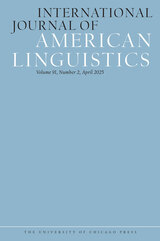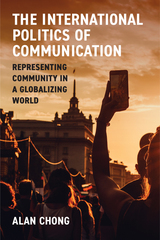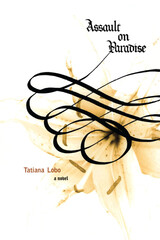
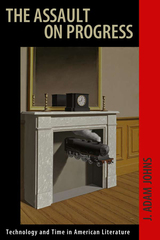
A belief in progress is a fundamental ethos in American history and culture. The Assault on Progress probes American literary works that challenge the prevailing notion of technology as a manifestation of progress. J. Adam Johns argues that the idea of technology-as-destiny has long been explored—and undercut—in American literary works and that literature remains a crucial site for ongoing debates in this area.
Johns studies the phenomenon by which each generation comes to regard itself as the hinge upon which history turns. He explores several works by historians of technology, focusing in detail on the works of literary critic Lewis Mumford, whose examinations of Herman Melville’s novels provide an early example of critical interest in the abandonment of progress as a value.
He goes on to study the works of William Faulkner and Ralph Ellison, focusing on the convergence of technology and race—machines and slavery, and highlights the ways that these writers have portrayed humans as reduced to machines, evidence that technological “progress” is not always progressive, or liberating to humanity.
The conclusion argues for a shift in our understanding of the relationship between technology and time. According to Johns, writers like Melville, Faulkner, and Ellison help us to think of technology separate from notions of progress, and therefore help us to escape from a perilous ideological bind that forever situates humankind at the end of history.
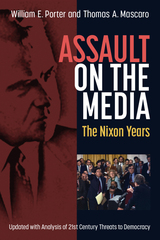
Informed by a half-century of historical analyses and released documents, this expanded edition of William E. Porter’s award-winning Assault on the Media analyzes new documents of significance; synthesizes recent historical analyses; incorporates legal evaluations by journalism scholars; and traces how Nixon-era plans cultivated the divisive state of 21st-century society and amplified assaults on journalism. It also evaluates lasting concerns about the Supreme Court’s Pentagon Papers decision and journalists cited for contempt as a form of prior restraint; the currencies of power and race in protecting confidential sources; and regulatory decisions that hamper effective journalism. Assault on the Media not only documents the incidents and circumstances of governmental intimidation, harassment, and regulation of the news media during the Nixon presidency, but it offers insights into the long-term effects and their relevance today.

With funding cuts well under way and many institutions already promising to charge the maximum £9,000 yearly tuition fee, university education for the majority is under threat. This book exposes the true motives behind the government's programme and provides the analytical tools to fight it.
Widespread student protests and occupations, often supported by staff, unions and society at large, show the public's opposition to funding cuts and fee increases. The contributors to this sharp, well-written collection, many of whom are active participants in the anti-cuts movement, outline what's at stake and why it matters. They argue that university education is becoming increasingly skewed towards vocational degrees, which devalues the arts and social sciences – subjects that allow creativity and political inquiry to flourish.
Released at the beginning of the new academic year, this book will be at the heart of debates around the future of higher education in the UK and beyond, inspiring both new and seasoned activists in the fight for the soul of our universities.
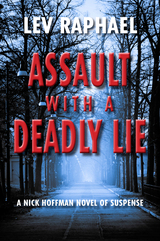
A novel of suspense set in the academic world, Assault with a Deadly Lie probes the disturbing psychological impact of slander, harassment, stalking, police brutality, and the loss of personal safety. What will Nick do when his world threatens to collapse? How can he reestablish order in a suddenly chaotic life?
Assault with a Deadly Lie, the eighth installment of Lev Raphael's Nick Hoffman Mysteries, propels the series to a new level of danger and intrigue as Nick and Stefan are catapulted out of their tranquil existence by shocking accusations.
Finalist, Midwest Book Award for Mystery/Thriller Fiction, Midwest Independent Publishers Association
“A riveting great read for mystery/suspense fans, author Lev Raphael once again documents his impressive gifts as a storyteller, holding the reader’s rapt attention from beginning to end with unexpected plot twists and surprise twists.”—Jack Mason, Midwest Book Review
“Raphael portrays with frightening power the wrenching experience of victimization by the corporatized, PR-prioritized groves of academia, where both men teach, and by local authorities militarized into SWAT teams practicing police brutality. . . . The compelling core of this unusual novel is Raphael’s depiction of the agonizing reality of victims’ shame, in which someone ‘feels doubly exposed talking about the violation’ and so says nothing.”—Booklist
“Professor Nick Hoffman learns that even tenure can’t guarantee real security.”—Kirkus Reviews
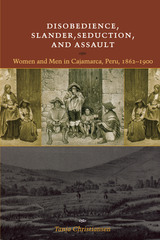
Though the law and courts of nineteenth-century Peru were institutions created by and for the ruling elite, women of all classes used the system to negotiate the complexities of property rights, childrearing, and marriage, and often to defend their very definitions of honor. Drawing on the trial transcripts of Cajamarca, a northern Peruvian province, from more than a century ago, this book shares eye-opening details about life among this community, in which reputation could determine a woman's chances of survival.
Exploring the processes of courtship, seduction, and familial duties revealed in these court records, historian Tanja Christiansen has unearthed a compelling panorama that includes marital strife, slander, disobedience, street brawls, and spousal abuse alongside documents that give evidence of affection and devotion. Her research also yields much new information about the protocols for conflict and cooperation among nineteenth-century Peruvian women from all social strata, and the prevalence of informal unions in an economy driven in large part by migratory male labor. Reviving a little-known aspect of Latin American history, Christiansen's book simultaneously brings to light an important microcosm of women's history during the nineteenth century.

“The Emmanuel Movement” was a name given by the contemporary press to a combined method of group and individual psychotherapy introduced in 1906 by the Rev. Elwood Worcester, Rector of the Emmanuel Church in Boston. This treatment method for the common neuroses, offered to the public free of charge and open to all social classes and religious denominations, was first welcomed with great popular acclaim but later ravaged by the widespread newspaper publicity it attracted. The movement continued its stormy existence for a decade beyond Worcester’s retirement in 1929. His successors applied his methods—including group treatment, the first to be employed in psychotherapy anywhere—to the treatment of alcoholics.
In The Emmanuel Movement, Sanford Gifford presents the definitive statement on this unique movement. He examines its position during a critical phase of American psychotherapy, and discusses the methods and personalities—both champions and detractors—associated with it.

In this challenging new book, Jean Bethke Elshtain, a nationally recognized scholar in political science and philosophy, and J. Timothy Cloyd, a strong new voice in social and political science, have assembled a collection of thought-provoking essays on these issues written by some of the finest minds of our day.

Bringing together leading activists and writers from the United States and beyond, this book unmasks the covert and undemocratic world of corporate spin.
Wherever big business is threatened or corporate advantage can be gained, spin doctors, lobbyists, think tanks and front groups are on hand to push the corporate interest, often at the wider public¹s expense.
The authors challenge the notion that corporate PR is only about celebrity gossip. They show how it extends much further, and how the techniques of the PR industry are now in use across a wide range of political fields, driven by corporate interests.
The authors reveal the secrets of the PR trade, including deception, the use of fake Œinstitutes¹ and think tanks, behind the scenes influence-peddling, spying and dirty tricks. Most importantly, they show the devastating impact spin has had--as the public is denied access to the truth, the results are rising inequality and environmental catastrophe.
The book covers the misdeeds of some of the best-known companies including BP, Coca Cola, British Aerospace, Exxon and Monsanto. It also reveals startling new information about the covert funding of apparently independent thinks tanks and institutes in the US, EU and around the globe.
Thinker, Faker, Spinner, Spy also offers a guide to resisting deceptive PR. The authors describe concrete campaigns involving the internet and new communication technology to organise, raise awareness and campaign to roll back corporate power and the influence of PR.
This volume is edited by William Dinan and David Miller (University of Strathclyde and Spinwatch). Contributors include: Laura Miller (PR Watch), Gerry Sussman (Portland State University), Kert Davies (Greenpeace US), Leslie Sklair (LSE, UK), Bob Burton (PR Watch, Australia), Judith Richter (author and activist), Olivier Hoedeman (Corporate Europe Observatory, Netherlands), Andy Rowell (Spinwatch, UK), Eveline Lubbers (Spinwatch, Netherlands), James Marriott and Greg Muttitt (Platform, UK), Aeron Davis (City University, UK), and Granville Williams (Campaign for Press and Broadcasting Freedom and Huddersfield University, UK).
Published by Pluto Press in association with Spinwatch (www.spinwatch.org) .
William Dinan is Lecturer in Sociology in the Department of Geography and Sociology at Strathclyde University, specializing in corporate PR and lobbying.
David Miller is Professor of Sociology in the Department of Geography and Sociology at the University of Strathclyde. He has previously edited Arguments Against G8 and Tell Me Lies: Propaganda and Media Distortion in the Attack on Iraq for Pluto Press.

Cundill Prize Finalist
An Economist Best Book of the Year
A Financial Times Best Book of the Year
“Superbly original…Breaks new ground by showing how a collective consciousness emerged among revolutionaries.”
—The Economist
“A clearly written, brilliantly researched examination of the people and movements that shaped Asia’s course in the 20th century and continue to influence the continent today.”
—Walter Russell Mead, Wall Street Journal
“The most gripping work of history I have ever read. It is a truly profound meditation on the struggles for freedom that shaped modern Asia…a flat out literary masterpiece.”
—Sunil Amrith, author of Unruly Waters
European empires had not yet reached their zenith when Asian radicals planted the seeds of their destruction. They gained energy and recruits after the Bolshevik Revolution, which sparked visions of a free and radically equal world. Thanks to cheap printing presses and the new possibility of international travel, these utopian revolutionaries built clandestine webs of resistance from London and Paris to Calcutta, Bombay, Hanoi, and Shanghai. Tim Harper takes us into this shadowy world, following the interconnected lives of Asian Marxists, anarchists, and nationalists such as M. N. Roy, Ho Chi Minh, and Tan Malaka.
Underground Asia shows for the first time how these national liberation movements crucially depended on global action and reveals how these insurgencies shape the region to this day.
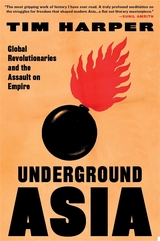
An Economist Best Book of the Year
A Financial Times Best Book of the Year
A major historian tells the dramatic and untold story of the shadowy networks of revolutionaries across Asia who laid the foundations in the early twentieth century for the end of European imperialism on their continent.
This is the epic tale of how modern Asia emerged out of conflict between imperial powers and a global network of revolutionaries in the turbulent early decades of the twentieth century.
In 1900, European empires had not yet reached their territorial zenith. But a new generation of Asian radicals had already planted the seeds of their destruction. They gained new energy and recruits after the First World War and especially the Bolshevik Revolution, which sparked utopian visions of a free and communist world order led by the peoples of Asia. Aided by the new technologies of cheap printing presses and international travel, they built clandestine webs of resistance from imperial capitals to the front lines of insurgency that stretched from Calcutta and Bombay to Batavia, Hanoi, and Shanghai. Tim Harper takes us into the heart of this shadowy world by following the interconnected lives of the most remarkable of these Marxists, anarchists, and nationalists, including the Bengali radical M. N. Roy, the iconic Vietnamese leader Ho Chi Minh, and the enigmatic Indonesian communist Tan Malaka. He recreates the extraordinary milieu of stowaways, false identities, secret codes, cheap firearms, and conspiracies in which they worked. He shows how they fought with subterfuge, violence, and persuasion, all the while struggling to stay one step ahead of imperial authorities.
Underground Asia shows for the first time how Asia’s national liberation movements crucially depended on global action. And it reveals how the consequences of the revolutionaries’ struggle, for better or worse, shape Asia’s destiny to this day.
Previous praise for Tim Harper
Praise for Forgotten Wars:
“[A] compelling book.”—Philip Delves Broughton, Wall Street Journal
“Lucid…majestic.”—Peter Preston, The Observer
“Authoritative.”—Pankaj Mishra, New Yorker
Praise for Forgotten Armies:
“Panoramic… Vivid.”—Benjamin Schwarz, New York Times Book Review
“A spectacular book.”—Martin Jacques, The Guardian
READERS
Browse our collection.
PUBLISHERS
See BiblioVault's publisher services.
STUDENT SERVICES
Files for college accessibility offices.
UChicago Accessibility Resources
home | accessibility | search | about | contact us
BiblioVault ® 2001 - 2025
The University of Chicago Press



